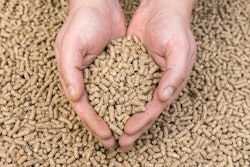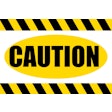
Facing limited supplies of zinc oxide in the United Kingdom, all sectors of the pig industry are seeking alternative solutions to post-weaning diarrhea in piglets.
After a previous European Union decision to ban the use of zinc oxide in pig feeds, the government of the United Kingdom (U.K.) has announced that products already in the supply chain on June 26 can still be supplied and used.
In its latest announcement, the Veterinary Medicines Directorate (VMD) said the country’s pig industry had prepared for the withdrawal of marketing authorizations for these medicines. In recognition of this progress to phase out zinc and put in place alternative approaches, the VMD announced that zinc oxide products may still be used after the end of this month.
Their use can continue until the end of their shelf life. However, no further supplies may be placed on the market. This is in accordance with established practice when authorizations expire, according to the VMD.
On the U.K. market, there are two zinc oxide products for oral administration to food-producing animals affected by this decision.
Industry reactions
With a shelf life of two years, the latest clarification from the VMD suggests that zinc oxide medicines would be available until mid-2024. However, limited supplies mean U.K. pig farmers will need to use alternative methods to control piglet diarrhea sooner than that, reports the industry organization, the National Pig Association (NPA).
It reports that supplies from DSM, which markets PigZin in the U.K., will likely run out by mid-2023. In consultation with its customers, veterinarians and feed manufacturers, the company says it has prioritized all available supplies, as appropriate.
NPA senior policy adviser Rebecca Vale said it had hoped existing supplies would last longer. She recognized the challenges faced by producers, veterinarians and nutritionists in the absence of a direct replacement for zinc oxide.
For the Pig Veterinary Society, senior vice president Jim Morris said members are reviewing evidence on alternatives to zinc oxide to prevent piglet post-weaning diarrhea. These focus on optimizing the nutrition and environment of pigs at this crucial stage of their growth, he said. He added that some European countries are not phasing out zinc oxide.
NPA reports the call from the feed industry body, the Allied Industries Confederation, for fair distribution of the available stocks of zinc oxide products.
5-year path to phasing out zinc oxide in European pig feeds
In March 2017, the European Union body responsible confirmed a previous decision that that veterinary medicines containing zinc oxide should be withdrawn from the market for food-producing animals, including pigs.
Carried out by the Committee for Medicinal Products for Veterinary Use (CVMP) of the European Medicines Agency (EMA), the review found that the benefit-risk of using these products for this application is negative. In particular, the CVMP found that the benefits of zinc oxide administered orally for the prevention of diarrhea (scouring) in piglets do not outweigh the environmental risks presented by the chemical. The decision was based on evidence supplied by EU member states.
As a consequence, it would refuse any further marketing authorization applications for zinc oxide, and withdraw existing marketing authorizations for these veterinary medicines.
Previously, France and the Netherlands had referred the matter to the EMA. In February 2016, they raised concerns about the potential risk zinc oxide presents to the environment and for the co-selection of antimicrobial resistance. At the end of the same year, the CVMP concluded that the risks outweighed the benefits.
In early 2017, a Standing Committee of the European Commission and member states reviewed the potential impacts on the pig industry of the withdrawal of these medicines.
For the U.K. government, the VMD had presented evidence for a 10-year transition period if the medicines were to be withdrawn. Supporting this time frame was to allow opportunities to change farming practices to reduce the incidence of diarrhea after weaning. Without these changes, it said, animal welfare could be compromised, and antibiotic use increased.
Among the alternatives explored for maintaining piglet gut health in the absence of zinc oxide are seaweed and fermented rapeseed.














